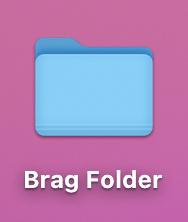Instead, Tori says actually talking to people in your industry about salaries is a game changer. “If I’m a social media manager in Seattle, I’m going to have conversations with other social media managers. I’ve had conversations with people I met at a networking event, maybe previous bosses, people I met on LinkedIn. Maybe I have a recruiter friend who hires people with similar skill sets.” Not sure what to say? Tori suggests sending an email that says something like, “Hey, I hope you’re doing well. I’m seeking out a new job and here’s the job description. Here’s a quick summary of my skills and expertise. Based on your knowledge, what would you price this role at?” “But if they don’t list it or if your state has not made doing so a requirement, the biggest thing is to not give a number first. You don’t want to end up undercutting yourself or underpricing yourself.” When you’re asked about your salary expectations, Tori suggests giving a response like, “‘It is too early in the process for me to accurately price myself. However, I would love to know your budget.’ This puts the ball back in their court and 9 times out of 10, they’ll just give you their budget.” This kind of messaging sandwiches the request for more money between statements of gratitude and excitement and also emphasizes collaboration as opposed to a “my way or buh-bye” kind of approach. It shows that you’re really interested in the role and just want to iron out the details together. After all, you’re also interviewing the company and if management won’t discuss compensation (aka the number one reason most of us have jobs in the first place), they probably won’t magically change this stance if you accept the role. Tori says that she always recommends pushing for an education stipend. “It’s a way of bolstering your resume while also making you a better employee.” On the first sheet, you’ll have your original job description. “You’re going to go bullet point by bullet point and tell a story with statistics, some sort of narrative that shows you have not only done your job but also done it well,” Tori explains. So if a bullet point on your job description says, “Answer incoming support tickets in a timely fashion,” you might jot down, “Answered an average of 50 support tickets per day with a 99.8% satisfaction rate.” Then, on the next sheet, you’ll write down everything you’ve done on top of your job description. This means any problems you solved, projects you led, and anything else you’ve done that’s above and beyond the basics of your role. Between these two pieces of paper, you should have all the info you need to make your case. Tori says, “If you’re coming in, you have more negotiating power when you first start and more than you actually ever will again at that job. So make sure that you’re negotiating.” Additionally, many companies do their annual reviews before setting budgets so that can be a great time to ask. As for being underpaid… And when the conversation comes around, keep it focused on your amazing work and don’t bring other coworkers up. Coming into the discussion with a clear head and a collaborative mindset will go a long way. Instead of falling into this loyalty trap, Tori says employees need to look out for themselves first. “They will lay you off. They will cut your hours, and it’s not personal but they have company to run. You need to view it the same way. If you’re not being compensated fairly, it’s time to move on.”













